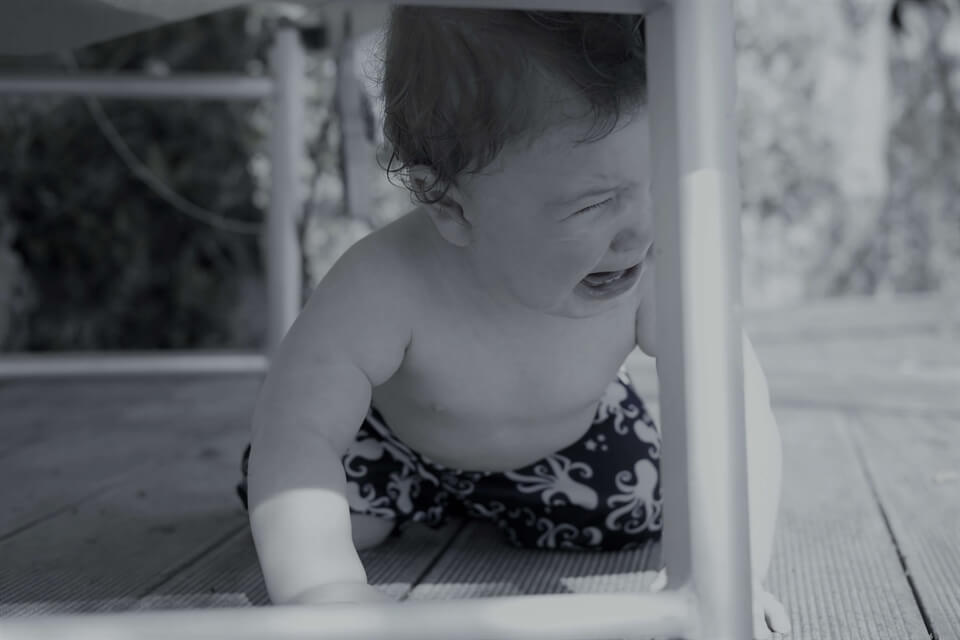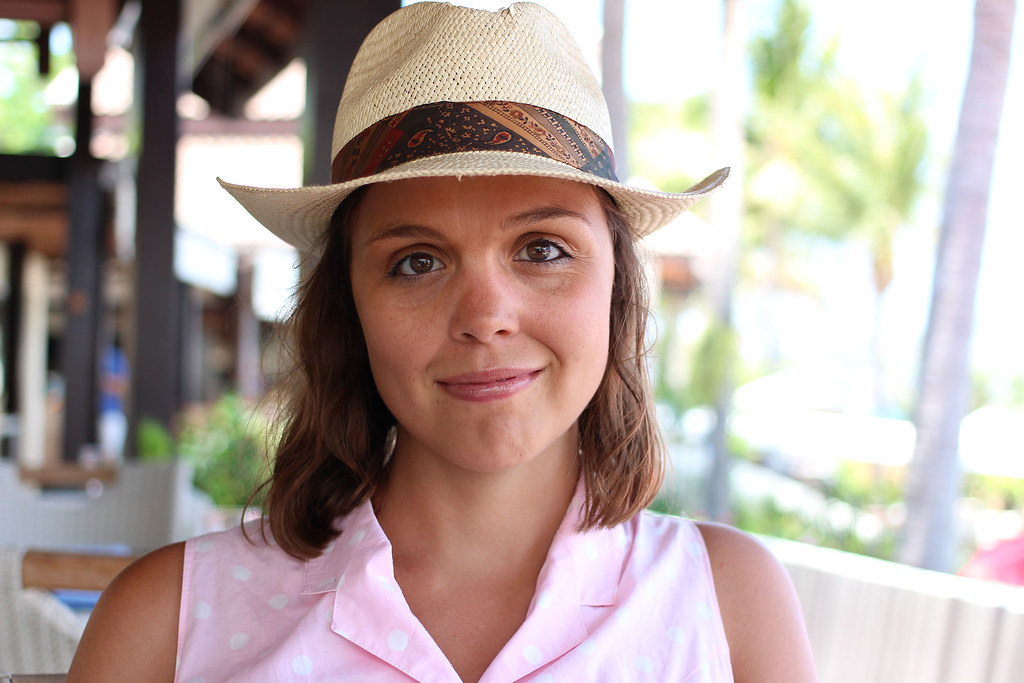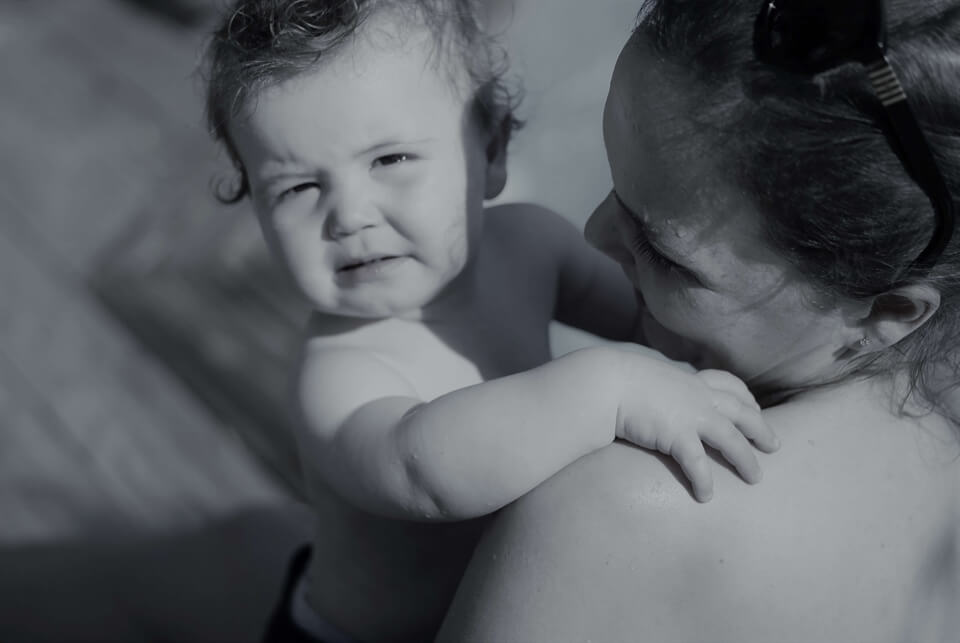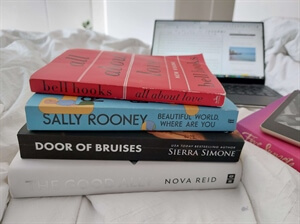On Motherhood: Tips for Surviving a Crying Baby
Tips for Parents of Crying Babies
So maybe the above title needs a revision, because let's be honest, ALL babies cry. So yes, this post is a summary of tips for all parents of babies.
I have written at length in a separate post about why the hardest thing I've dealt with as a parent has been my babies crying. I know, I know, this sounds ridiculous, but I explain at great length why that is, why I've long been reluctant to admit and how much damage this has caused in this post. I also provide quite a lot of evidence to suggest that I am far from alone in feeling this way so please do read this post if you want to get a better understanding of why you shouldn't just dismiss crying babies as crying babies.
For now, let's just accept that dealing with a crying infant (or any other human being in distress) can be incredibly hard, stressful and intense on a person's mental and even physical health.
So how do you deal with it? How do you help yourself AND your baby when they are crying? How do you not let those awful minutes of screaming and sobbing (you and/or them) ruin the rest of your day? Well, that's exactly what the tips below aim to help you with.
Babies Cry. But You Don't Have to... ish
Now, before we go further, I want to state for the record that I see nothing wrong in crying along with your baby. I am sure there are many people more qualified than me that disagree with this and will rush to provide reasons why hiding any sort of emotional stress from your baby is the "better" thing to do. But I am an emotional person and I am sensitive to other peoples' emotions too (fellow highly sensitive empaths, raise your hands!) so of course, hearing my own child whose well-being I am responsible for, is going to cut a little bit deep.
So while I think we are all on the same page about how "normal" this is, what I don't see being discussed or written about much is how we manage the impact of crying infants on parents and guardians' own mental and even physical health. How do we deal with the stress? How do we minimise it in the first place? And perhaps most importantly, how do we let go of it so we don't let it weigh us down and make us feel heavier than we ever deserve to be?
These are some of the questions I hope to answer with my tips on how to survive a crying baby (or two, or three or four.)
How to Survive a Crying Baby

Honestly speaking, I don't think I have just yet "survived" crying babies so maybe this is another title that needs a bit of revision but it's essentially what I want you to think about so let's stick with it.
My youngest son is nearly 15 months and so is a delightful mix of baby and toddler with all the crying, screaming and meltdown-ing you can imagine. While his cry is no longer the staccato, volcanic squawk it used to be, it still has the power to haunt me, but I know I am generally speaking in a better place. At least I hope so. So let me share what (little!) I know and give you some ways to deal with a constantly crying baby to help you cope with it more than to try to silence your baby.
Everybody Reacts Differently to Crying Babies
As with all stimuli, the human race will demonstrate a wide variety of reactions to a crying baby dependent on way too many factors to list here but let it be simply said EVERYONE IS DIFFERENT. Therefore some babies will cry a lot, some will cry relatively little. Some will scream loudly, some cries will be comparatively quiet.
Parents will also have wildly different reactions to the cries of their own babies from becoming a nervous wreck at any noise the baby makes, through to not giving a rat's ass and ignoring it completely. Let's say the latter is a sociopath, in which case they've got other problems. But if you are the former I would urge you to speak to someone about this immediately because this state is extremely fragile, especially if you are the primary carer for your child or children, and it could be indicative of a underlying mental health condition that is no doubt making your life very difficult.
I suspect most of us falls somewhere in the middle. Right now I am able to deal with up to 30 minutes of crying without it affecting my blood pressure. Two or three months ago, it was just 10 minutes before I felt a tension headache stretch out across my forehead. Who knows what it will be next month or even next week or tomorrow?
But one thing is for certain, I do my utmost to avoid any kind of comparison or judgment in assessing whether the stress I feel from my baby crying is "normal". I know that there are some mothers who barely break a sweat when their baby has been crying on and off for hours, and I know there are other mothers who can't take much more than five minutes before crying themselves or panicking or asking for help.
ALL of these reactions are normal. Stop beating yourself up about how hard you find your baby crying (or anything!). Weirdly, and very helpfully, you may find in doing so that you actually start to feel better about handling that crying infant.
Drop ALL Your Sticks!
In the same vein of thought, it follows that you should stop beating yourself up about anything you may have done to cause the crying or not alleviate it.
Even if your kid WAS hungry and wanted food and you missed it (because, you know, you just fed him 30 minutes ago so why would he want another feed less than an hour later!?) or maybe he was crying because there was something uncomfortable stuck in his onesie (thanks big brother hiding toy dinosaurs in your baby bro's clothes) and you missed that too, drop ALL THE STICKS that you have ready to beat yourself with because they are absolutely NOT going to help you deal with your kid's crying or help you let go of the stress that brings to your day.
This is, of course, not easy to do. For various horrible reasons (see capitalism and patriarchy) we have become conditioned to find fault and subsequently a solution, and then blame, in anything that doesn't seem right and that includes in ourselves. But just try to be aware of the stress or upset you feel. How much is a reaction to your baby crying? And how much is blame you are piling onto yourself?

Nature is Wonderful and Cruel
Let's be honest. Nature is not flawless. Anybody who has actually grown and birthed a child will agree with that.
It's brilliant that your baby is programmed to cry when he needs you (because he can't speak yet) but it's also bloody annoying that your baby cannot tell you the specific thing he needs from you (because he can't speak yet).
Most other mammals on this planet are born and walking within a few hours. It's therefore the baby's responsibility to come to the mother for food or comfort, and for many species, sadly, only the strongest survive. We humans have it hard when it comes to raising infants and getting them to the same physical and mental abilities (approximately aged 18 months) that most mammals are born with.
Keep all of this in mind when dealing with a small infant. Looking after a young baby is not as innate or natural as some people would have you believe. There are countless reasons why a baby is crying - it is after all it's one and only way to communicate - but how are you supposed to know what each cry means. Throw in aggravating factors like colic, cramps, reflux, and potentially more serious and painful afflictions that are often undiagnosed for months, and babies are going to cry and cry and cry.
There is no manual. There is no Google search that will help you (believe me, I've tried them all). Wonderfully and harshly, there is actually no other person who knows your baby better than you do, so if you have tried everything you can think of and you still don't know why they're crying, don't worry about figuring it out, worry about getting through it because...
Sometimes Babies Cry For No Reason
It's possible some Earthy, crunchy mothers are going to disagree with this point blank, but I believe it to be true. Sometimes babies cry just for the sake of crying, or communicating as it is in their world. Heck, sometimes I cry for no reason.
This thought alone has comforted me more than I can say. So much so that I don't care if it's technically right or wrong.
Take Time to Understand Your Baby
With my first baby it took months, if not years, for me to really feel like I knew him. Babies reveal so little of themselves for so long, it's a little audacious of us to think we know them instantly, in my opinion. So let crying and struggle be a part of that process. A shitty, hard, bumpy part of the process but a process none the less. Never, ever, ever expect it to be perfect.
Take Even More Time to Understand Yourself
And as for understanding this new version of me, I would say it really did take years for me to know who I was as a mother. Still today, I am struggling with figuring this out. But I am more curious, accepting and sometimes even excited about who I am as a parent.
The Worst Feedback EVER
I get a bit riled when people refer to motherhood or parenting as a job. It's SO much more than that. For one thing, most jobs pay you and give you annual leave, and they don't usually prevent you from going to the toilet or drinking cup of tea while it's still hot.
But okay, let's say that parenting is a job well, let me say this loud and clear for anybody from the parenting union (hahaha!) to hear. The feedback sucks.
Crying is the worst feedback ever, but because it's often the only kind of communication you get from the person you are in charge of it feels like the only feedback available.
Even feedback from outside sources can be grossly unhelpful. We are so simplistic when it comes to babies. Babies that don't sleep, smile or stay calm are BAD babies. Babies that sleep well, smile a lot, giggle on demand and play by themselves nicely are GOOD babies. While the babies are mostly (thankfully) unaware of this character analysis/assassination some parents - especially vulnerable first-time mothers - will suck up such comments and beat themselves up that it's their fault. And then when you baby just cries at you for hours at a time, it's hard not to take that feedback to heart.
It's all rubbish, by the way, and means nothing. My first son barely cracked a smile for the first four months of his life. My second son smiled more in the first three months of his life than my eldest did in the first six months of his life. Hindsight is a annoyingly helpful thing in helping you see if motherhood is a job, you need to forget about feedback of any kind.
Remember always that crying - in any form be it your own tears or your baby's - is the worst kind of feedback or critique I've received on any job I've done, and believe me, I've had some TERRIBLE bosses. But this is why it's really important to remember that...
You Are The Boss
Let me say that again. You are the boss.
If these kind of power dynamics appeal to your personality, say this to yourself regularly when you're having a hard time with a crying baby. Because it can so quickly and easily feel like they are in charge of the situation, and yes, that ear-splitting scream may have a hell of a lot of power, but they do not pay the bills. That baby needs you more than you need him (harsh, but true) so soak up whatever power from this that you can and use it to look after yourself, and then your baby, in that order.
Modern Parenting Presents Its Own Challenges
It took me a few months to realise just how much modern motherhood is different from how women have been raising children for hundreds, thousands of years. For countless generations women were surrounded by other women as they raised children. Older children, aunts, grandparents and other members of the community would be there. For most women, it was always a group effort. And even those who were more isolated geographically, they would raise children in much simpler times. Women had children years earlier. Co-sleeping was the norm, and while the domestic load was no doubt a heavy one, external influences were minimal.
When I became a mother I went from having all of my time for myself - I even worked for myself and from home - to having very little time for myself. I went for caring for nobody but myself, to caring for a very needy and very vocal baby boy. It's a sign of my great privilege that I've never had to do lengthy amounts of care work for another human and it was a shock to my system when it seemed that was all I was doing. I didn't enjoy it. Hand on heart, I still don't enjoy many parts of it, but I have found peace with it and some sense of satisfaction because I have flipped the way I view care "work" and I try to take all the pride I should in all the work I do as a parent even if it is so very different from what my daily life before kids looked like.
Again, I'm not saying I want to return to the days when all women did was caring for others and keeping a home, but I think we need to recognise that today's version of motherhood - and the way we women are now (rightly!) raised - presents its own challenges and in so many ways sets us up for disappointment, struggle and failure thanks to so much external noise and so little village-like help.

Discuss Action for Overwhelm (with Yourself and Your Partner)
If you have a screaming baby, what do you (and your) partner do? Yes, you try to soothe them by offering food, a nappy change, cuddles and more. But what do you do to SOOTHE YOURSELVES.
Be it before, during or after, have a think about what you can do to make a crying baby less hellish. If you're on your own, can you gift yourself regular breaks by putting the baby down for a few minutes every now and again. If you decide this before the baby is actually crying, you may find it easier to remember and carry out this when it's needed. What can you reward yourself with once the baby has stopped crying and is maybe, hopefully sleeping. A hot bubble bath or shower? A chocolate bar? A nice cup of tea? Give yourself incentives and rewards for surviving those most stressful minutes or hours of crying.
And if you have a partner or another adult that you can share the load with discuss together what you should do to help each other out when a baby is crying. What is the time limit that one person should spend with a crying child? What words and type of reassurance would help you out the most? My partner and I used to have a "safe word" that we used to tell the other one we were finding it hard and that they should take over. It was the most ridiculous word that stemmed from a private joke so even saying it helped to shift our moods and sometimes prompted a small laugh or two. And then after the storm has passed, how can you both help alleviate the stress and tension you feel as a result; Shoulder massages all round? Take-away for dinner? Opening a bottle of wine?
Crying babies have caused or aggravated many an argument between my partner and I but nearly as often they have been sources of bonding and connection, and key to that is helping each other through it and often becoming a united front against the "enemy". The enemy you both love with all the oxygen in your body.
Try Not to Do Anything Else Stressful With a Baby Crying
Now I know this can't always be avoided, but if you have an important email to write, a mountain of paperwork for your accounts to go through or if your partner are on the cusp of an argument (which is very possibly prompted by your baby crying), I would highly recommend you DON'T embark on any such activity while there is a baby crying either in your arms or elsewhere in the house.
If you also have other children, be mindful of your elevated stress levels when then embarking on potentially stressful tasks with them like, ahem, anything! For me, the most stressful moments are when I'm trying to get my kids out of the door and if the baby starts crying, the usually hard enough task of putting my 4-year-old's shoes, coat and bike helmet on are like dressing a jelly fish, sometimes with the sting too. This quickly results in raised voices, more tears and my heart rate higher than when I've been on a run.
Of course, when you have to take your kids to school or daycare by a certain time this is pretty much unavoidable, BUT when you have a crying baby and you do something difficult/stressful, remind yourself over and over (and over and over) that the crying is making it harder, and that it's okay to find it intense and that it will be all over and calmer soon (ish). And oh yeah, do all that deep breathing stuff everyone always recommends (and for good reason!).
Give Affirmation a Go!
It's during these most stressful of unavoidable moments that I try (but often fail!) to lean on affirmations to help me stay calm inside and encourage positive thinking rather than negative self-talk. I know many people will roll their eyes at affirmation (and I used to be one of them) but science backs up the belief that thinking positively breeds more positive thoughts and focus. It is based on the same logic that leads your mind into a downward spiral of negative thoughts.
Take advantage of the power of the mind to just repeat simple but highly effective positive thoughts and affirmations to help you through your baby's crying fit or a toddler's temper tantrum. My favourites are "This too shall pass", "I will not hold onto the stress I feel right now", "I can do difficult things", "I am a wonderful mother to my kids", "My kids love and trust me enough to show me their distress" and when all else fails I try to make myself laugh with "My kids don't hate me, they're just in a bad mood".
If you are curious about affirmation, you can find out more about how and why it works here, and find 100 daily positive affirmations here.
It is ALWAYS Okay to Walk Away When You Have to
Almost last but definitely not least, know that it's always okay to leave a baby crying as long as they are in a safe place.
It doesn't matter if they've been crying five minutes or an hour, if you feel overwhelmed or out of control or like you just need quiet to think straight, put your baby in their cot and walk away. I do this regularly - sometimes multiple times in an hour or so on particularly bad days - and I always come back feeling a bit better.
Your Love of Your Child is Unconditional, Your Enjoyment of Time with Them is Not
A friend told me this after I was telling them how hard I found parenting, and I remind myself of it nearly every single day. Parenting will bring days (weeks and months) that you really hate. This does NOT diminish your love for your child. You will always love your child, but you will NOT always love being a parent. Write this down somewhere - maybe your eyelids? Or above your baby's cot? - and know that not a single minute of you not enjoying being a parent means you love your kids any less.
Being a parent is a rollercoaster of big feelings and big struggles. Along the way are many big joys and the biggest rushes of love. But we shouldn't dismiss what we find hard even if it is one of the most obvious things or if it is something that other people don't struggle with (or at least they don't openly say so). As with all of the things I write about being a mother, it is in acknowledging what we find hard that we feel less alone and sometimes find a way out of or through the despair that comes with it.

Frances M. Thompson
Find Frankie on Facebook, Twitter, Instagram, Pinterest, and Google+.

 Book Reviews: Mid-Year Book Report 2022
Book Reviews: Mid-Year Book Report 2022 My Thoughts: The Life-Enhancing Joy of Romance Novels
My Thoughts: The Life-Enhancing Joy of Romance Novels My Thoughts: 21 Things That Helped Me in 2021
My Thoughts: 21 Things That Helped Me in 2021 Family Travel: How to Travel with Kids - My Golden Rules
Family Travel: How to Travel with Kids - My Golden Rules Self-Love: Self-Care Activities for Kids
Self-Love: Self-Care Activities for Kids About the Blog & Frankie
About the Blog & Frankie Welcome to My Amsterdam Travel Blog!
Welcome to My Amsterdam Travel Blog! Welcome to My Luxury Family Travel Blog!
Welcome to My Luxury Family Travel Blog! Welcome to My Writing Blog!
Welcome to My Writing Blog! Lover Mother Other: Poems - Out Now!
Lover Mother Other: Poems - Out Now! I Write Stories That Move You
I Write Stories That Move You Order WriteNOW Cards - Affirmation Cards for Writers
Order WriteNOW Cards - Affirmation Cards for Writers Work With Me
Work With Me